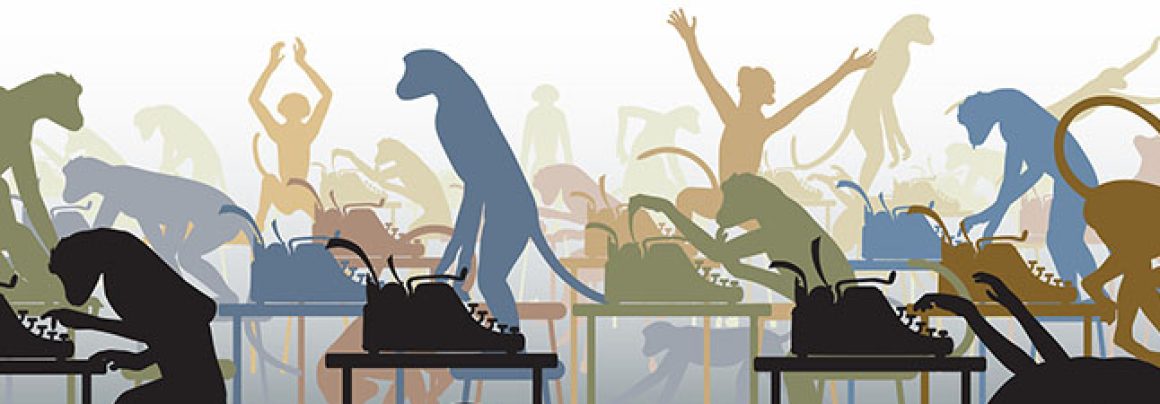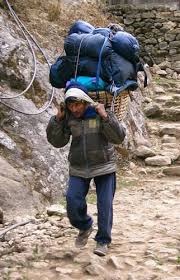It’s Saturday morning, which means the tension is starting to build for our weekly out-of-home social interaction. Regardless of whether we get together with people in a higher income bracket or a lower, my wife faults me for doing, saying, wearing, implying or inferring something I shouldn’t have.

“We tried a Choctaw for awhile, but we went back to Navajos.”
To give you a few examples: “You’re not going to wear that, are you?” are the words she usually says when she first sees the clothes I’ve put on. “Don’t mention anything about what I told you Lisa said about Jack, okay?”–whatever she said had been promptly forgotten by me as soon as I heard it.
But I live in a different world from her; tapping at my computer all day, yelling or being yelled at on the telephone, sending out bills, filling out timesheets. I rarely if ever come into actual contact with humans, and by that I mean to include some of my highly-educated knowledge industry colleagues. As a result, my social skills are admittedly . . . atrophied.

“Tell her she has on a lovely dress, but DON’T look at her knockers.”
“The problem is you never give me any guidance–any context–until we’re on the other couple’s doorstep,” I say.
“Your problem is you’re not good at understanding code,” she says, and not with a great deal of sympathy. “You take things literally that aren’t meant seriously, and vice versa.”
“What do you mean ‘code’?”
“There are certain things you don’t say, certain things you don’t do–and they change depending on whose house we’re at. Like tonight you have to get dressed up, but next Saturday is a ‘nice’ blue jean night–okay?”
I was, if anything, more confused than before. “Can you buy flash cards or a crib sheet on this stuff?”
“I don’t think so,” my wife said. “Part of the attraction of conventions is you can use them to weed out others, so all the better social sets keep them a secret.”

“Says he’s ‘Doing great’? Must have lost his job.”
I didn’t see anyway out of my predicament. “Well, I don’t want to just stick by your side all night wherever we go.”
“I don’t want you to either,” she said, staring out at the middle distance, plainly frustrated. “Maybe we should get you a code talker.”
“What’s a code talker?”
“They’re members of Indian . . .”
“You mean Native American . . .”
“Whatever–tribes that have really complex languages, so they can talk in code and they can deciper codes.”
My wife is not generally known for graduate-level inquiries into questions of the nature of language, so I was suspicious. “Where’d you learn that?”

“We’ll be right back with more tips on decorating your kids.”
“It was on Martha Stewart Living, right after a segment on stenciling your children.”
I considered her suggestion for a second; if some Native American could serve as my guide through the wilds of the metrowest suburbs of Boston and help me avoid a long uncomfortable silence on the road home from a stylish–but casual!–party, it would be money well spent.
“Okay–I’ll give it a try,” I said, “but where am I going to find a code talker in two days?”
“Try that rental place down by the falls–they have everything.”
So after I took the trash to the town dump I dropped by the You-Rentz-It franchise and asked the guy at the counter if they rented code talkers.
“What kind ya lookin’ for?” he asked, as if it was the most routine request in the world.

“Her kid got into Penn? Tell her how sorry you are to hear it.”
“I don’t know–what do you have?”
“We’ve got Navajos, Choctaws, Comanches. I’ve got a Basque that’s gonna be returned tonight.”
“What kind’s the best?”
“Navajos are the top of the line.”
“Which is cheapest?”
“Comanches. What kind of shindig is it?”
“Cocktail party.”
“How many people?”
“Probably . . . at least twenty.”
“I dunno,” he said scratching his head, Will Rogers-style. “I don’t think you want to pinch pennies on an affair like that. You’ll end up paying for it in the long run.”
I seemed to recall from my childhood watching westerns that Comanches were fierce warriors. Probably best not to stint.
“I’ll go with a Navajo for Saturday night.”
“I’ll need a credit card for the deposit. You can pick him up at 5.”
“Is there an instruction manual so I know what to do with him?”
“Don’t worry. He’ll know what to do.”
I paid and went home to tell my wife. She was watching an episode of Grey’s Anatomy she’d taped, and so she was in defcon alert posture, poised to block out all extraneous stimuli such as husbands.
“We’re all set with the code talker,” I said.
“Um-hmm,” she replied, not wanting to waste precious energy she might need for sobbing later.
When the time came, I picked up Chester Joe Leader and his kit of code-cracking equipment.
“What kind of grub are they serving tonight?” was his first question after we were in the car.
“Finger food,” I said. “Asparagus wrapped in prosciutto, mini-quiche, stuff like that.”
“No little ham sandwiches?”
“People usually don’t do that until the holidays,” I said. “So, how exactly do we do this?”

“I get you wired up, and I set up outside,” he said with all the emotion of Sergeant Joe Friday on Dragnet.
“Okay.”
“I can hear what people are saying, but they can’t hear me. Only you can, through your earpiece.”
He held up what looked to be an old-style hearing aid, the kind my mom used to wear that gave off more feedback than a Jimi Hendrix solo. “Okay.”
“I listen to what people say and decipher it for you.”
“You spent much time in the western suburbs?”
“It’s pretty plain vanilla. The North Shore’s tougher, summer colonies in Maine are impossible.” The guy apparently knew his stuff.
When I got home my wife was ready for once because she’d agreed to bring an hors d’oeuvre and we had to arrive early to warm it up.
“Sweetie, I’d like you to meet Chester Joe Leader, my code talker.”
How-do-you-dos were exchanged, and we got in the car after I grabbed the obligatory bottle of white wine we’d been trading back-and-forth with our hosts for the past two years. It’s a fruity Burgundy that we’re both afraid to try.
“Do these people have shrubbery?” Chester asked.
“HUGE rhododendrons,” I said. “The kind Virginia Woolf compared to suburban stockbrokers, which is what our host is.”
“Good. They give you lots of cover without being prickly.”

Woolf: “Do me a favor and leave me out of your stupid posts.”
We dropped Chester off the length of a football field from our destination, and he made his way by stealth up the lawn and into the bushes.
“Let’s hope this works,” I said.
“It better,” my wife said with an expression that wouldn’t have looked out of place on the face of the gas chamber attendant at a maximum security prison.
Our hostess greeted us and we were ushered into the party, which was in full swing. There was a bartender so the usual struggle to get a drink wasn’t a problem, and we began to circulate.
“Danger dead ahead,” my wife said.
“What?”
“That’s Missy and Mark Wainwright.”
“What’s the problem?”
“Her parents gave him $200,000 to buy some stupid franchise, and it’s draining money like the Hoover Dam.”
“Okay, I’ll watch myself,” I said. “Chester–you copy that?”
“I’m right here for you,” he said. “Proceed.”
We ambled up casually and, after the usual over-the-top faux surprise greeting, settled in to chew the fat, figuratively speaking.
“How’s everything at your shop?” Mark asked.
“Say fine and change the subject,” Chester said.
“Gotcha,” I said.
“What?” Mark asked.
“Sorry–I uh, felt a sneeze coming on. We’re doing fine thanks–considering the economy!”
“Tell me about it!” he exclaimed with a little-boy-lost look on his face. “We’re . . .”
“Now!” Chester snapped.
“Hey–what do you think of the Patriots’ draft? What’s the guy’s name . . . Maye?”
“Uh . . . well, I guess he’s no Brady, but who is?”
I felt like a fencer who’d just parried a deadly thrust. We two men exchanged idiotic speculation on somebody we knew next to nothing about for five minutes, then the Wainwrights departed for a youth baseball game.
“Everything okay?” my wife asked dubiously.
“Just dodged a bullet there. Anybody else you want to warn me about?”
“Here come the Andersons,” my wife said, turning towards me like a pitcher in a jam on the mound so the other side couldn’t read her lips. “She doesn’t know it, but Susan saw Sam coming out of a restaurant with his secretary while Cindy was off for a girls’ weekend at an Arizona spa.”
“That could be awkward,” I said, and just in time as the Andersons bore down on us like a sailboat running downwind into a marina. “You there Chester?”
“I’m on it,” the code talker replied with a calm, even tone. I felt–reassured. “Do not ask about vacations–got it?” he said.
“Will do,” I said just as the cuckoldette reached our personal space.
“Hey you two!” Cindy said to us–big hug and party kiss from her, a handshake from the cheatin’ side of the family.
“Hello there, strangers!” my wife said. “Haven’t seen you since you got back. Was it fun?”
“I came back so relaxed!” Cindy said. “All that was gone in about a day!”

Back to the grind.
“Welcome back to the rat race!” my wife said. What’s she talking about, I wondered: the yoga, the pilates, or the spinning class?
Sam seemed to be suffering from a bout of mauvais foi, which is not a form of pate. It’s the gnawing guilty conscience over the lie you’re living. He was at a loss for words, and I didn’t want to fill up his tank.
“Don’t ask him what he did while the wife was away,” I heard Chester say in my earpiece. “Don’t ask him what he did last weekend.”
“I’m waiting for some positive suggestions,” I muttered into my hand as I pretended to cough.
“Ask him . . . what he thinks of the election.”
“Are you crazy?” I said, pulling myself away as I pretended to be fascinated by a bowl of mixed nuts. “I never bring up politics at parties!”
“You’ll have to trust me on this one,” Chester said.
I gulped, almost involuntarily; Chet was the expert, however, so I turned to meet my counterpart with a quiche-eating grin on my face.
“So, every day’s a wild ride with Biden in the White House, isn’t it?”
“It is,” Sam said thoughtfully, and a few heads turned at my obvious social faux pas. Our little suburb was reliably Republican fifteen years ago, but now it’s become fashionable to pretend you care about the poor beyond the value of the charitable deductions they so generously provide us. “But you know what I really, really like about the Democratic Party?” he began.
“What was that?” I asked.
“Hillary Clinton,” Sam said. “She always forgave Bill whenever he . . . uh . . . strayed.”
Available in Kindle format on amazon.com as part of the collection “Blurbs From the Burbs.”














































